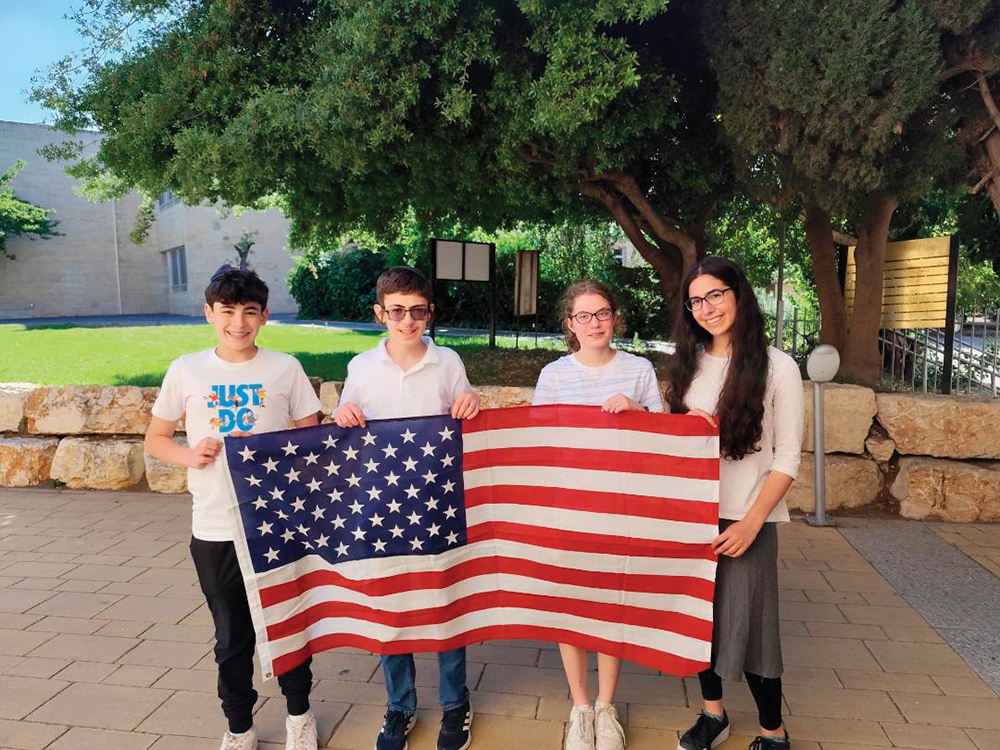
While a pall of sadness hovered over the Independence Day celebrations this year, and the transition from Remembrance Day to Independence Day was less contrasted than usual, the Israeli International Bible Contest for youth, held every year on Yom Ha’Atzmaut, is an Israeli institution and continued to forge its iconic path, waving the flag of Torah and, using the events of the past seven months as the theme of this year’s competition, to inspire the contestants, and teach the heritage of millenia.
Contestants aged 14-18 from 14 countries participated in the quiz. Sixteen finalists participated in the two-hour televised event, with four contestants from America: Emanuela Milman, of Yavneh Academy and now Yeshivat Frisch; Micky Cyrulnik, of Yeshivat Noam and now TABC; Penina Crystal from Ilan High School in Deal; and Dov Gothelf, who is home-schooled, from Denver, Colorado.
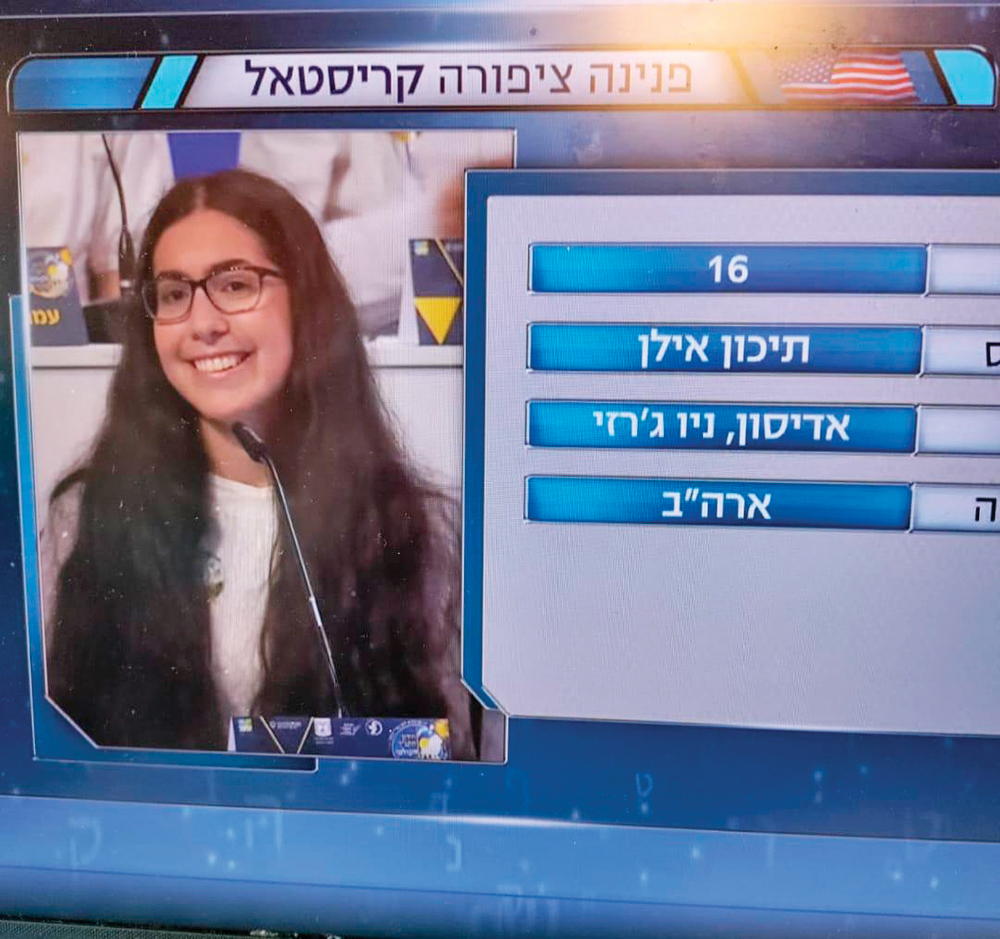
Although Dov is from Denver, his grandmother Barbara Elem traveled to Israel from East Brunswick, and said she’s “extremely proud and thrilled with the opportunity to share in the event.” She was duly rewarded when her grandson took third place (really second because the two Israeli Chatanei haTanach, Evyatar Bar-Gil of Jerusalem, and David Shasha from Petach Tikva, tied for first.
The quiz took place at the Jerusalem Theater on May 14 at 11 a.m., part of the traditional Yom Ha’Atzmaut celebrations, and was hosted for the first time by a married couple.
The themes of the quiz were Heroism and Rebirth, and Returning Our Sons to Their Borders. The war did not hover as a dark cloud over the competition; it provided its background, highlighting the unique courage and spirit of the Jewish people and the Israeli army.
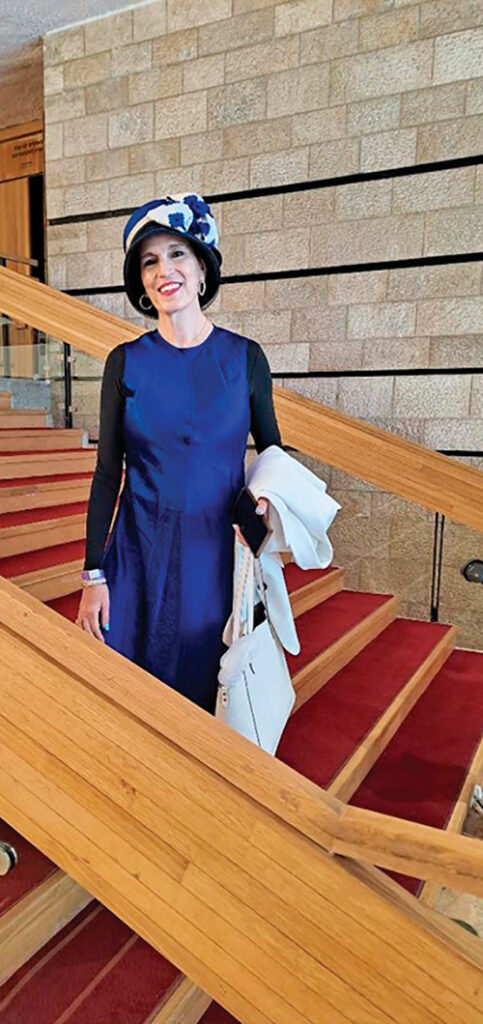
With cheers reminiscent of a baseball game, the participants’ fan clubs, made up of family and friends, supported and applauded in ways that show we are all family. Actually, sometimes literally. Half of the American team, Crystal and Cyrulnik, are first cousins.
Singer Yagel Oshri was accompanied by six children from the still-evacuated Kibbutz Alumim, who sang inspiring songs, one of them called “We Are a Nation of Superheroes.”
Among the judges was Iris Chaim, the mother of Yotam Chaim, who was accidentally killed by Israeli soldiers while trying to escape Hamas. She has been a pillar of strength and a bastion of faith in these difficult times and said at the contest, “Without spirit, there is no strength.”
Yemima Mizrachi, Israel’s beloved rabbanit, said, “These participants are the answer to what’s going on at the campuses.”
The contestants enjoyed two weeks of touring, learning and competing against each other. Crystal said, “Everyone was so supportive of one another, even though we were in competition.”
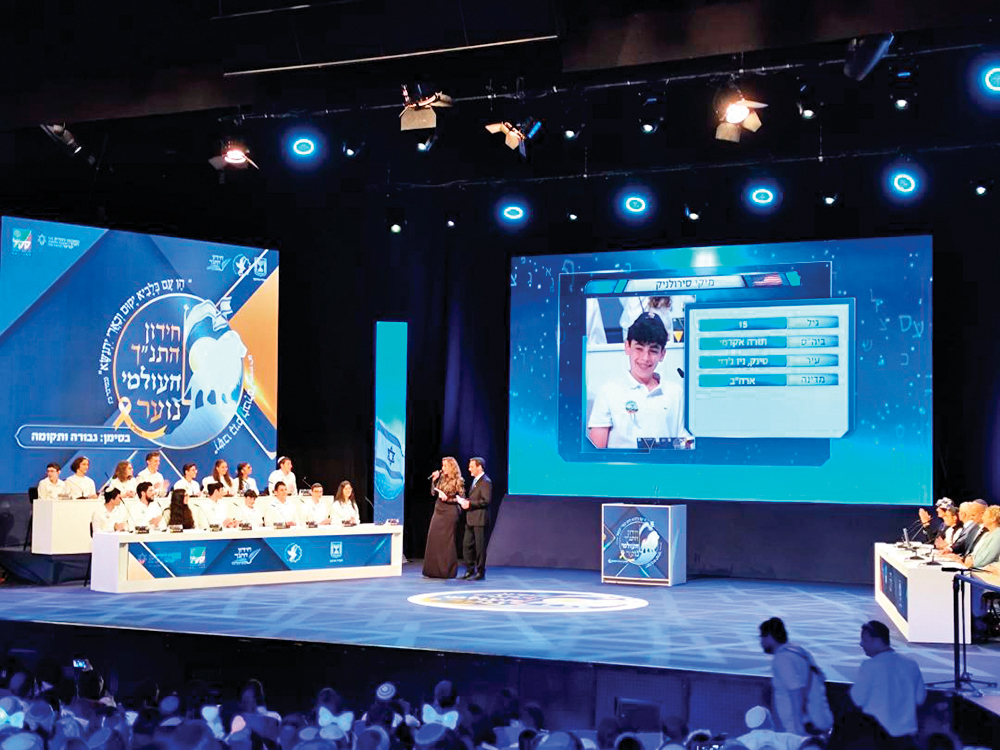
Prime Minister Benjamin Netanyahu was physically absent from the events of Yom Ha’Atzmaut, preferring to spend time with wounded soldiers, but he videoed his introduction and his question, which involved the laws of redeeming hostages.
The American delegation did itself proud, with all four making it to the televised round of 16 contestants, and Crystal and Gothelf continuing to the next cut of eight. And of course, Gothelf won third place.
Rabbi Dov Nadel, of the Jewish Agency, who has been organizing the American contingent for the past eight years, said that he’s very proud of how much work these students have put in to learn hundreds of chapters of Tanach.
There is a year’s gap between winning the American competition and participating in the Israeli one, since finals in America are held at almost the same time as the Bible Quiz in Israel, so the contestants in this year’s Israeli competition are the winners from last year’s American contest.
The tests preceding the televised final are all written, but on Yom Ha’Atzmaut the contenders have to answer questions verbally, on stage, in front of an audience and television cameras, within a certain time frame. That adds stress for the contestants.
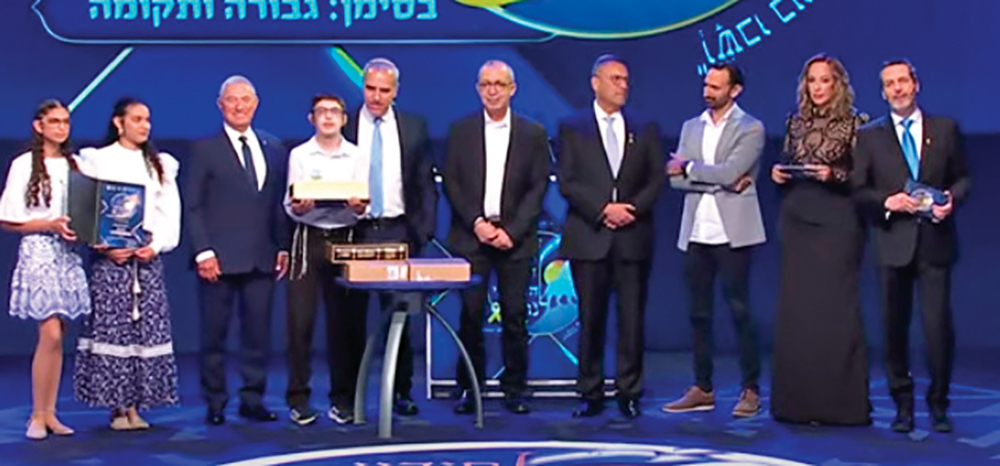
For Crystal, that was her greatest challenge—getting up in front of people. Performance anxiety added to the pressure of the competition can make anyone forget their name, let alone the answer to difficult biblical questions. “I feel amazing,” she said, though, after the competition, “and relieved,” very pleased with how well she had done. She placed fifth.
Cyrulnik said, “It was a challenging but really fun experience.”
Questions were presented as usual, in short movie clips by some of the heroes of the Israel-Hamas war—Rachel Edery, who helped save herself from terrorists by offering them cookies and whose cookie recipe subsequently went viral; girls from Sderot who spent the day touring in Ir David; soldiers in Miluim, and the creator of a special Megillah documenting this difficult time.
Coming on the heels of the Eurovision Song Contest, which every year showcases just how low the nations of the world can sink, and in which Israeli contestant Eden Golan was forced to sing alternate lyrics to her song commemorating the war, the International Bible Contest, in marked contrast, is a beacon of light showcasing the values and moral compass of the Jewish people, who are never better than when uniting for the common good.
On October 7, 2023, Simchat Torah, a day when we were supposed to be celebrating the Torah, the Jewish people suffered unprecedented losses. At the Jewish Bible quiz, the Jewish people showed the world how Am Yisrael and the Torah continue to be a light unto the nations. The Jewish nation has risen once again from the ashes.
Another song showed an emotional and uplifting clip of soldiers returning home to Oshri’s rendition of “Od Yavo Yamim Tovim” (“Good Days Will Come Again.”)
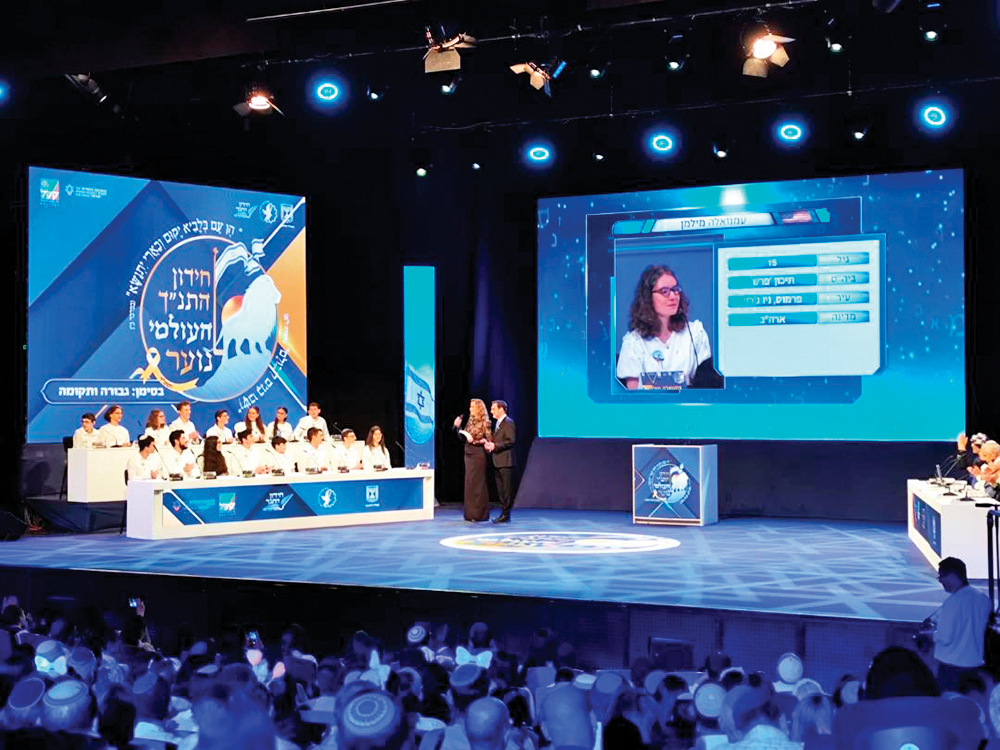
Being part of the contest is a high honor for many young people and their families, but more than anything else, it helps increase the number of Tanach students among Jewish youth, adds a spiritual dimension to Independence Day, and encourages educational interaction between Israeli and Diaspora youth.
According to Nadel, “The war in Israel didn’t deter the students or the parents. Their attitude was, “Davka now, let’s make this happen. The most important part about this chidon is that it’s celebrating Israel, Torah and togetherness. We’re proud of our American contestants.”
Rosally Saltsman is a freelance writer, originally from Montreal, who lives in Israel. Come join her!








